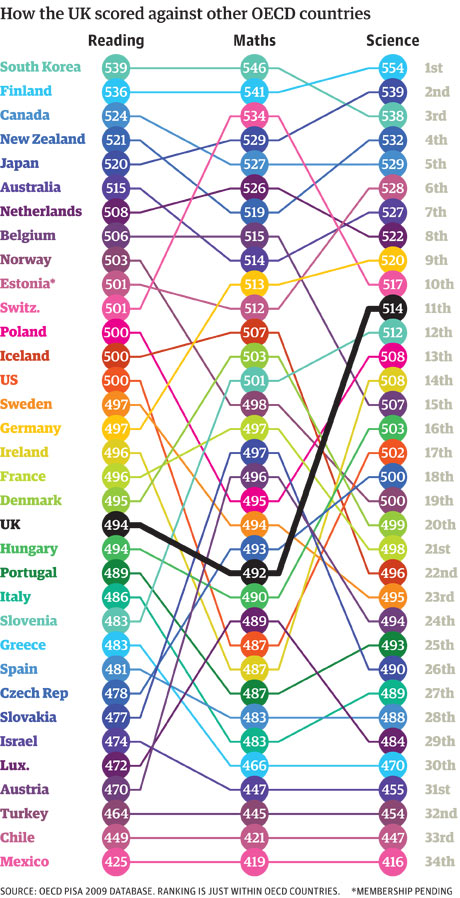Michael Gove is keen to see what we have to learn from education systems internationally, but the lessons may not be as straightforward as he thinks, says Valerie Hannon
Recently Michael Gove has stressed the importance of comparing education systems internationally, as seen in the OECD's Pisa studies, and of learning from the most successful nations. But what should our response be?
The education secretary enthuses about Andreas Schleicher, of the OECD, calling him the "most important man in English education" for the insights his work confers. Schleicher's analysis, according to Gove, shows, first, that "we [England] are falling further and further behind other nations"; and second, that the key to success is "to recruit the best possible people into
teaching and provide them with high-quality training and professional development". This is true – as far as it goes. But it is a partial analysis.
What else have successful systems to tell us about the issues we face today? Schleicher's work demonstrates compellingly that demand for the competencies 20th-century school systems were good at imparting (routine cognitive and manual skills) is falling sharply among employers across the world. He shows that 21st-century systems need to prepare young people with the skills to undertake non-routine analytic and, especially, non-routine interactive tasks. Schleicher's conclusion is: "The skills that are easiest to teach and test are also easiest to digitise, automate and outsource."
The implication of these findings is that systems need to prepare students "to deal with more rapid change than ever before … for jobs that have not yet been created … using technologies that have not yet been invented". This is about learning how to learn, and new ways of thinking that involve creativity, critical thinking, problem-solving and decision-making. It is in sharp contrast to an emphasis on the capacity to reproduce facts. Reducing the debate into a "skills v knowledge" dichotomy is manifestly false. The issue is the right balance between content acquisition, and the skills and dispositions needed to succeed in fundamentally changed conditions. This is the key message of Schleicher and the OECD's work. It is to be hoped that the current curriculum review is permitted to take this wider view.
For this is the perspective being adopted by the world's leading systems. Rather than relying on past achievements, they are reconceiving how they approach the future. Take Finland – always at or near the top of the Pisa rankings. The director of the Finnish board of education has described how their system has identified the key competencies for lifelong learning, and is setting about transforming their system to ensure they're acquired. Critically, this entails enabling learners to "undertake meaningful problem-based inquiry, which might be multi-disciplinary, supported by blended teaching methods and hybrid resources". The Finns aren't giving up on acquiring knowledge. They just know it's not enough.
Then there's South Korea, another "top performing" system. Perceived as exam-driven, cramming its students, Korea is set to change. Exploring the work of its very best
schools has revealed that they focus on providing concentrated time for some subjects (rather than shallow drip-feed); on personalising learning; on evaluating creativity; and on experience-based learning. South Korea is basing its innovation agenda on the "three C's": creativity, collaboration and character.
And finally, take one of the most improved cities in the world in terms of education performance – New York City. Gove recently hosted the former chancellor of the NYC school system, praising the rapid progress made by the city. What he omitted, however, was that NYC has acknowledged its current set of school improvement initiatives is inadequate to deal with the challenges young people face. So it has a launched an Innovation Zone, comprising a distributed network of schools, specifically to test and refine new approaches to learning and teaching that are more personalised and emphasise higher-level skills.
So yes, let's join the global education community seeking out the best ways to make learning engaging and relevant to young people in the digital age. But let's do it with open minds, and attention to all the evidence.
Valerie Hannon is a board director of the Innovation Unit.

